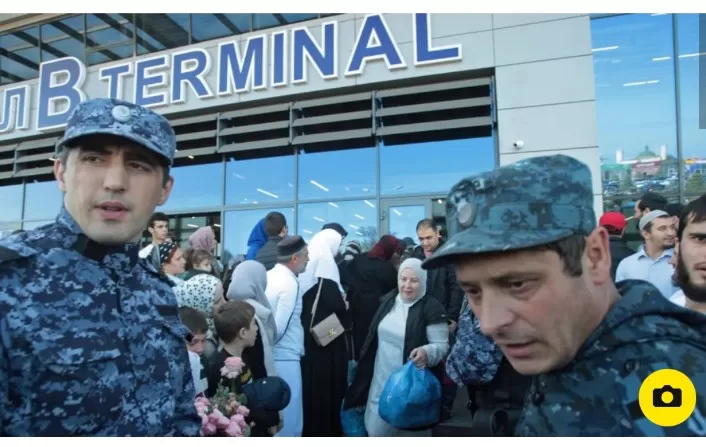Russia has taken more than 80 individuals into custody in connection with the recent antisemitic rioting that transpired at a Dagestan airport. The disturbing incident unfolded as hundreds of young men stormed the international airport to prevent Jews from disembarking from a flight originating in Tel Aviv.
Five individuals have been sentenced to jail terms ranging from six to ten days for petty hooliganism. Furthermore, federal investigators have initiated a criminal case for mass rioting, an offense carrying a potential maximum sentence of eight to 15 years in prison. As of now, it remains uncertain whether charges have been formally filed in connection with this case.
The riots, reminiscent of historical tsarist-era pogroms, drew attention due to the notable absence of a police response while the mob took control of the airport’s airfield and main terminal. Subsequent clashes resulted in injuries to dozens of people, including two police officers.
In response to the incident, law enforcement has belatedly initiated efforts to apprehend those involved. Simultaneously, authorities have issued vehement statements pointing fingers at shadowy foreign entities for their role in the disturbances.
Russian President Vladimir Putin, without specifying evidence, has attributed blame to the West and Ukraine, asserting that the riots were “inspired through social networks, not least from the territory of Ukraine, by the hands of agents of western special services.”
Leaders from various Russian regions have been actively addressing the situation. For example, the leader of neighboring Chechnya, Ramzan Kadyrov, issued stern warnings, stating that anyone partaking in an unauthorized protest could face severe consequences. Kadyrov was quoted as saying, “If at least one person comes out for unauthorised riots, detain and imprison him… make three warning shots in the air and after that, if the person does not comply… make a fourth shot in the forehead. They won’t [protest] again. This is my order.”
However, amid the efforts to quell the situation, there is recognition that these riots are not isolated incidents. The regional governor, Sergei Melikov, emphasized that arrests would continue at an accelerated pace. He stated, “The arrests are accelerating… first, they arrest 10 people, those people provide some information, and then from that information, we arrest more people.”
The Makhachkala airport, which sustained damage estimated at £2.5 million, has since reopened. While these events have prompted reflection on the need for addressing underlying social issues, they also underscore the critical role of education and communication to prevent such instances in the future. The mayor of Makhachkala, Yusup Umamov, urged fellow Dagestanis to engage with young people and emphasize the importance of compassion and sympathy for others while discouraging persecution based on religious and national grounds.







